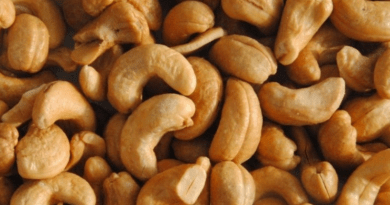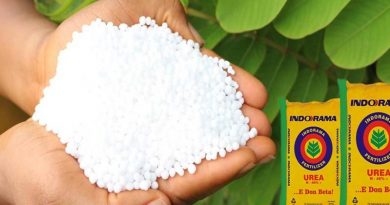Federal Government of Nigeria launches National Fertilizer Quality Control Act 2019
The Federal Government of Nigeria has launched the National Fertilizer Quality Control Act 2019 as a vital component of the Agricultural Policy of the present Administration and the bid to reposition the Nigerian economy from oil and gas to agribusiness.
The Act will safeguard and protect the interest of the entire
Fertilizer value chain players such as manufacturers, producers,
blenders, importers, distributors and the end-user farmers in Nigeria.
The
Minister for Agriculture and Rural Development, Alhaji Muhammad Sabo
Nanono stated this in his public presentation of the Act in
Abuja. Alhaji Sabo Nanono stated that the Agric sector contributes about
21.2% of the Gross Domestic Product(GDP) as at 2018, 88% of non- oil
foreign exchange earnings, employs about 70% of the active labour and
provides raw materials for the Agro-allied industrial sector.
Nanono
noted that the Act would provide an enabling environment for Fertilizer
enterprises to grow including the protection of investment in the Agric
sector and assured that farmers will get value for every kobo spent on
buying Fertilizer for their farms. According to him, “the Act,
therefore, seeks to ensure that maximum benefits are derived from each
kilogram of Fertilizer bought and used by the farmers in terms of
nutrients composition and levels “.
The Minister informed
that ‘’the quick ascent to the fertilizer Act by Mr President goes to
show the importance and commitment he attaches to the agricultural
sector in general and his desire to help protect the investments of the
Nigerian farmers, through the provision of this regulatory framework
aimed at guaranteeing the supply and distribution of quality fertilizers
and other farm inputs to farmers across the country at their doorsteps,
at the right time, right place and right prices”.
He
acknowledged the efforts of stakeholders including Nigeria Institute of
Soil Science (NISS), International Fertilizer Development Center (IFDC),
Alliance for Green Revolution in Africa (AGRA), Nigeria Agricultural
Business Group (NABG), Fertilizer Producers and Suppliers Association of
Nigeria (FEPSAN), Nigeria Agro-Input Dealers Association (NAIDA) and
other relevant stakeholders for their immeasurable support and inputs in
ensuring the actualization of this age-long dream of establishing a
fertilizer regulatory system for Nigeria.
The Minister stated that the Act is against activities such
as: Operating or carrying on fertilizer business as a manufacturer,
blender, importer or distributor in Nigeria with an expired permit or
certificate of registration; Selling any fertilizer supplement that
contains destructive ingredients or properties harmful to plant growth
when used according to the accompanying instructions or in accordance
with the instructions contained on the label of the package in which the
fertilizer or the fertilizer supplement is contained; also, engaging in
the illegal sales, distribution, transportation of fertilizers, among
others.
He further said that there is need to ensure that the
country meets the required set standards in terms of quality by
enforcing the following measures: Proper documentation and licensing of
all the players in the fertilizer value chain from the manufacturers,
producers, blenders, importers, distributors to the end-user farmers to
ensure traceability and accountability in the fertilizer delivery
process, Deployment and re-training of more Fertilizer Quality Control
Inspectors, among others.
The Permanent Secretary in the
Ministry, Dr Abdulkadir Mua’zu said that the legal and regulatory
framework for Fertilizer Quality Control would enable Fertilizer
Inspectors of Farm Inputs Support services Department (FISSD) of the
Ministry undertake periodic quality control and assessment to fertilizer
production plants, ports of discharge and market outlets to ensure
compliance.
Dr Mua’zu pointed out that “this is important
because the Federal Government has identified some violations in the
sub-sector which includes plant nutrient deficiencies, adulteration,
misbranding, underweight bagging, bagging quality, operating without a
certificate of registration and sometimes with an expired certificate of
registration”.
The Chairman, Senate Committee on Agriculture, Senator, Abdullahi Adamu noted that Nigerian farmers have suffered economic hardship based on the adulteration of fertilizer products over the years and he also appreciated President Muhammad Buhari for passing of the bill into law in October 2019.




